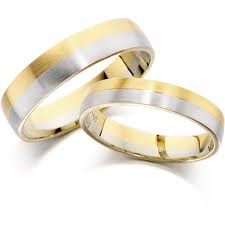By Laura Berol
Mixed orientation marriages are viewed skeptically in the LGBT community, and with reason. MOMs have been touted by practitioners of reparative therapy and have been endured by gays and lesbians trying to change their orientation, with heartbreaking results. As a woman attracted to women but married to a straight man, I’ve been forced to consider on a very personal level whether a MOM can ever be a healthy relationship.
I recently went to dinner with a friend to meet her new lesbian partner, who steered the conversation toward solving what she considered my problem. It didn’t matter that I’ve always been out to my husband, or that we both want to stay married. From her perspective, being in a MOM meant I was necessarily in denial and in pain. And she’s far from the only lesbian who has responded that way. Even bisexual women in my meet-up groups comment knowingly, “I wonder if you’re really as happy in your marriage as you claim.”
I see a parallel here to what I experienced at my Evangelical church some years ago, when I asked for healing prayer to help me process my grief from my mother’s death. For a couple of sessions, it was like self-directed therapy—until I mentioned my attraction to another woman. That brought the praying to an abrupt halt. The couple leading the session informed me that they couldn’t help me anymore unless my husband and I came in together to heal my homosexuality, which they viewed as the root of any psychic pain in my life. Since my homosexuality was perfectly healthy, I declined, but the couple assured me as I was leaving that, if my lesbianism were cured, everything else that hurt me would be too.
Both responses—from Christians, and from bis and lesbians—discount my competence to judge what’s best for me, what promotes my own mental health. They both view my sexuality as the definitive key to my personhood, and both want to grant ideology (regarding either religion or orientation) a greater authority over my life than my own life experience.
That makes some sense when it comes to religion. In fact, that’s generally what religion is: an ideological framework that people defer to in directing their lives. The LGBTQ movement, by contrast, is founded on a celebration of difference. We know from hard-earned experience that not everyone fits into the same mold, and we want freedom for everyone to follow his or her own path. This freedom, to my mind, should include deciding for oneself what’s most important in one’s own marriage. Sexual desire isn’t the only thing that matters in human life. Why must it trump everything else in determining whether I marry or stay married?
Think about it: how would you respond if your friends criticized you for not basing your choice of a partner on maximizing your health, wealth, or career opportunities? You’d thank them for their concern and let them know you had other priorities. No one involved would consider it a case for a therapist. But that’s what happens when a marriage choice doesn’t maximize sexual enjoyment.
I’m the last person to discount the importance of sex. I tortured myself for two decades, trying to make my desires fit Evangelical doctrine. If I were looking for a life partner now, I wouldn’t consider a man. But at this point, I’m not looking for a partner: I have one, and—for better or worse—my heart, mind and life are bound up with his. I do what I can to make sex work for me. Partner-guided fantasy and role-playing help. Even sharing frustrations can be a turn-on. Still, sex is only one facet of the life we’re exploring together, and my husband is the best person for me to take this journey with right now.
This is not to say that everyone in a mixed orientation marriage should stay there. Based on the statistics and common sense, I’d guess most should not. Fewer than one in twenty MOMs survive three years past a partner’s coming out. Yet statistics can’t tell us what to do. Each of us has to make terms with life individually. Claiming you haven’t had to compromise on anything is the only sure sign of denial, and it’s bound to lead to pain because it requires closing your eyes to what you’ve given up. Healthy decisions are possible when we acknowledge what we’re trading and why.
So if you have a friend whose life is going off the rails, by all means, reach out to her or him. Concern is one of the greatest gifts we can give each other. But if your friend isn’t in distress, consider, before you start finding fault, whether you’re in a position to judge the deal another human being has struck with life.
Laura lives in Falls Church, Virginia, with her husband and three sons. She’s currently writing a memoir of her college years, when she was torn between her faith and her sexuality.

